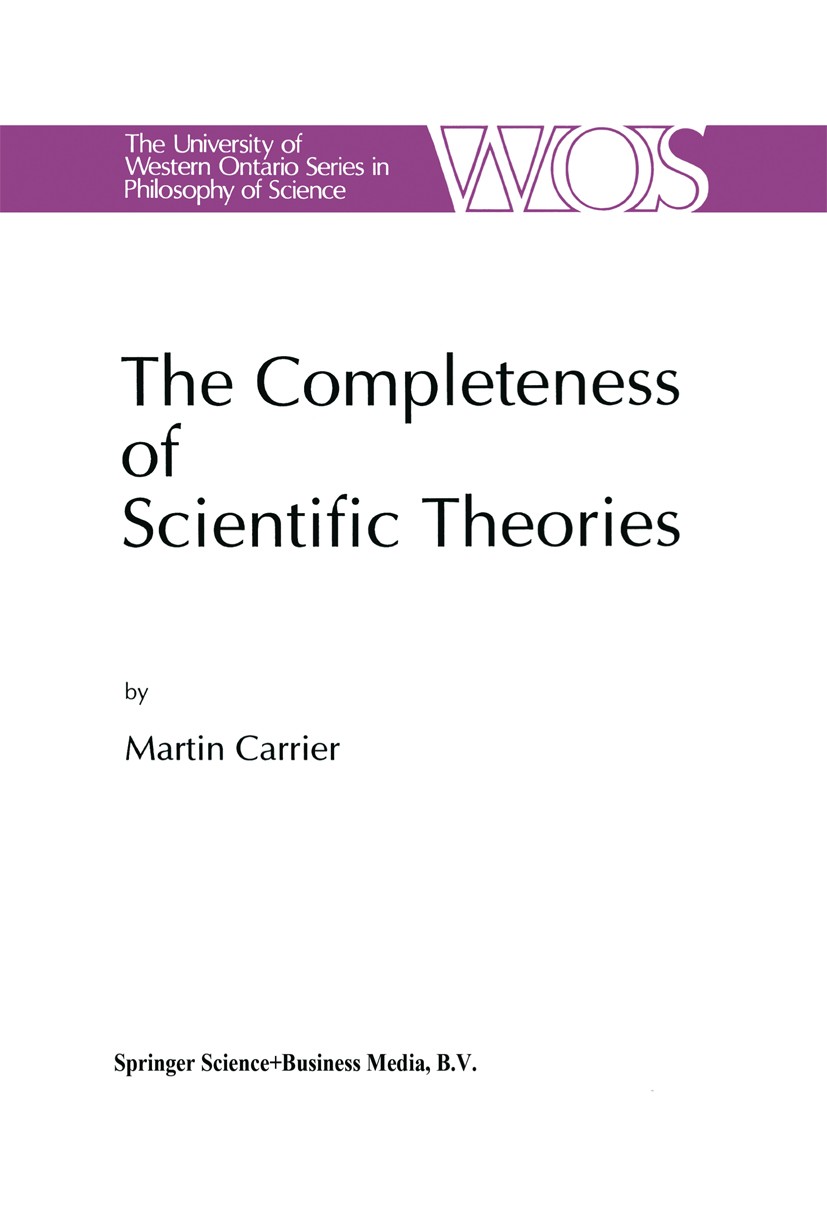| 书目名称 | The Completeness of Scientific Theories |
| 副标题 | On the Derivation of |
| 编辑 | Martin Carrier |
| 视频video | http://file.papertrans.cn/907/906509/906509.mp4 |
| 丛书名称 | The Western Ontario Series in Philosophy of Science |
| 图书封面 |  |
| 描述 | Earlier in this century, many philosophers of science (for example, Rudolf Carnap) drew a fairly sharp distinction between theory and observation, between theoretical terms like ‘mass‘ and ‘electron‘, and observation terms like ‘measures three meters in length‘ and ‘is _2° Celsius‘. By simply looking at our instruments we can ascertain what numbers our measurements yield. Creatures like mass are different: we determine mass by calculation; we never directly observe a mass. Nor an electron: this term is introduced in order to explain what we observe. This (once standard) distinction between theory and observation was eventually found to be wanting. First, if the distinction holds, it is difficult to see what can characterize the relationship between theory :md observation. How can theoretical terms explain that which is itself in no way theorized? The second point leads out of the first: are not the instruments that provide us with observational material themselves creatures of theory? Is it really possible to have an observation language that is entirely barren of theory? The theory-Iadenness of observation languages is now an accept ed feature of the logic of science. Many regard |
| 出版日期 | Book 1994 |
| 关键词 | geometry; philosophy; relativity; science; stability; theory of relativity |
| 版次 | 1 |
| doi | https://doi.org/10.1007/978-94-011-0910-9 |
| isbn_softcover | 978-94-010-4393-9 |
| isbn_ebook | 978-94-011-0910-9Series ISSN 1566-659X Series E-ISSN 2215-1974 |
| issn_series | 1566-659X |
| copyright | Springer Science+Business Media Dordrecht 1994 |
 |Archiver|手机版|小黑屋|
派博传思国际
( 京公网安备110108008328)
GMT+8, 2026-2-9 18:58
|Archiver|手机版|小黑屋|
派博传思国际
( 京公网安备110108008328)
GMT+8, 2026-2-9 18:58


